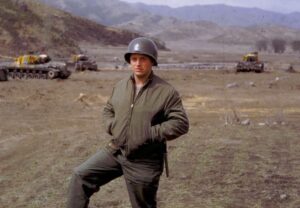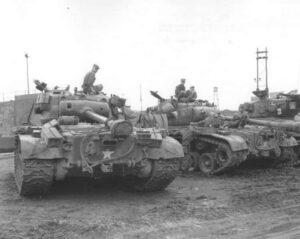lieutenant david teich
 These days, our military men and women have a code…Leave No Man Behind. That was not always the case, or maybe it’s just not the case with all soldiers. On April 22, 1951, the Chinese Army launched the Spring Offensive against American forces during the Korean War. They sent 300,000 Chinese troops to attack the American lines. An influx of that magnitude would be overwhelming for any army. Within two days the American forces were being overwhelmed. A unit from the 8th Ranger Company (Airborne) was looking pretty grim on April 24, 1951. They had been ordered to move forward to gain intelligence on the Chinese. They quickly became surrounded by Chinese soldiers. It was turning into every soldier’s nightmare. It didn’t look like they were going to make it out of the Korean War alive. The men had not been captured yet, but they were stranded where they were. They radioed their situation, hoping for rescue, but no one was willing to help.
These days, our military men and women have a code…Leave No Man Behind. That was not always the case, or maybe it’s just not the case with all soldiers. On April 22, 1951, the Chinese Army launched the Spring Offensive against American forces during the Korean War. They sent 300,000 Chinese troops to attack the American lines. An influx of that magnitude would be overwhelming for any army. Within two days the American forces were being overwhelmed. A unit from the 8th Ranger Company (Airborne) was looking pretty grim on April 24, 1951. They had been ordered to move forward to gain intelligence on the Chinese. They quickly became surrounded by Chinese soldiers. It was turning into every soldier’s nightmare. It didn’t look like they were going to make it out of the Korean War alive. The men had not been captured yet, but they were stranded where they were. They radioed their situation, hoping for rescue, but no one was willing to help.
Captain James Herbert, the company commander, and his men (87 enlisted, three officers) were able to bypass a good portion of the advancing Chinese units, but eventually, became cut off from the US lines. Herbert called for artillery fire and air strikes against the approaching Chinese. To his shock, he was told to “get out as best you can” and left to figure out their escape on their own. Unfortunately, Herbert was seriously injured in the crossfire, receiving bullets in the throat, shoulder and arm. His throat was in bad shape, and he had to compress the holes on either side of his neck himself, because a tourniquet would have choked him to death. As a result of his injuries, he was no longer able to make the radio transmissions for help.
With Herbert seriously injured, acting communications chief Corporal Eugene Rivera took over, desperate to save the men. Rivera estimated that the Rangers had about 20 minutes before the Chinese reached their position. He immediately crawled his way to the top of a napalm-fried hill to reach a radio signal. While there, e had a great view of the surrounding area, and soon, with great relief, he saw what he called “the most beautiful sight of my life.” Lieutenant David Teich of Company C, 6th Tank Battalion heard the radio communications from the Rangers. He knew those men needed serious help, and immediate action was needed. Teich approached his captain to see if he and his fellow tankers could attempt a rescue mission, but was told, “We’ve got orders to move out. Screw them. Let them fight their own battles.” Stunned, Teich made the decision to disobey the orders of his captain. Teich, decided to stay and lead four tanks to rescue the Rangers who had been cut off by the Chinese forces. While Teich and the brave men who stayed with him made their way to the Rangers’ location, Teich’s captain and other US troops traveled south to safety.
Had it not been for Teich and his brave men, Rivera and his 65 men would have been doomed. There was no  way for them to get out on their own. Teich and his men made their way to Rivera’s position on Hill 628 and retrieved the stranded Rangers. Herbert has since reflected on that day, saying, “Though we don’t always say it, Dave Teich saved our lives. If it wasn’t for him, we figure all of the survivors of the battle would have been killed or captured by the Chinese. We look upon Dave as our savior.” A total of 65 Rangers had survived and reached safety that day, because of Lieutenant David Teich. To this day, some of them still send letters of thanks to him, despite not knowing each other personally. As to the other men and their captain…well, as far as I am concerned, theirs was a despicable act of cowardice. They would have wanted others to come to their rescue, but they chose to run!! I’ll never see it differently.
way for them to get out on their own. Teich and his men made their way to Rivera’s position on Hill 628 and retrieved the stranded Rangers. Herbert has since reflected on that day, saying, “Though we don’t always say it, Dave Teich saved our lives. If it wasn’t for him, we figure all of the survivors of the battle would have been killed or captured by the Chinese. We look upon Dave as our savior.” A total of 65 Rangers had survived and reached safety that day, because of Lieutenant David Teich. To this day, some of them still send letters of thanks to him, despite not knowing each other personally. As to the other men and their captain…well, as far as I am concerned, theirs was a despicable act of cowardice. They would have wanted others to come to their rescue, but they chose to run!! I’ll never see it differently.

